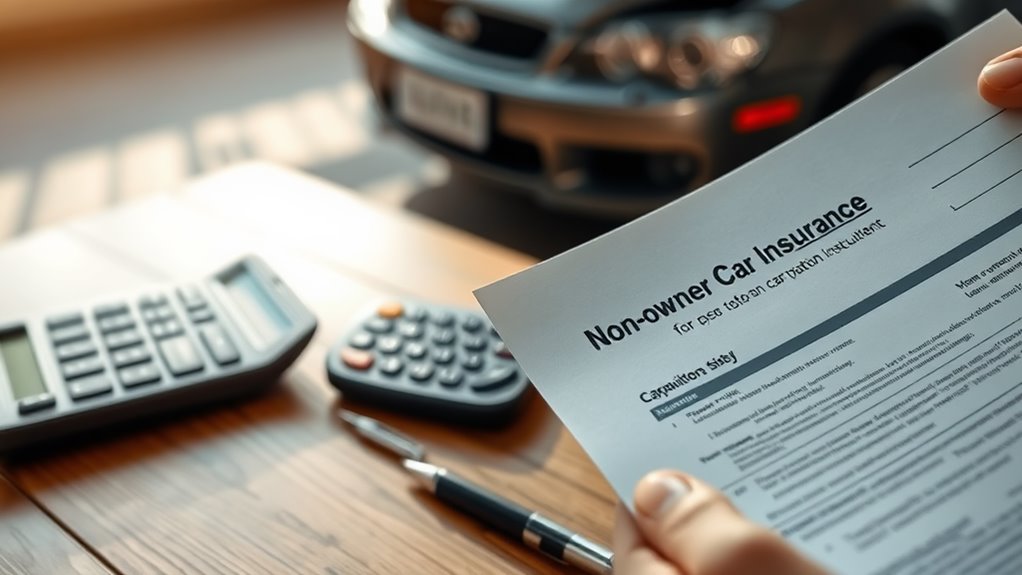Imagine steering through a maze where every turn can lead to a reward or a setback; that's what filing a car insurance claim can feel like. Understanding your policy is essential, as it sets the foundation for your strategy. Yet, many overlook the small details that can make a significant difference. By following a systematic approach, you can turn potential pitfalls into opportunities for a successful claim. So, what are the key steps you need to take?
Key Takeaways
- Document the accident scene thoroughly with photos, witness statements, and weather conditions to support your claim.
- Seek immediate medical attention to establish a clear connection between injuries and the accident for stronger evidence.
- Notify your insurer promptly with key details about the accident, avoiding discussions of fault to maintain a positive claim process.
- Gather multiple repair estimates to ensure fair assessment and negotiate settlements based on documented damages and expenses.
- Maintain organized records of all communications and documents related to the claim to facilitate negotiations and potential disputes.
Understand Your Non-Owner Car Insurance Policy

When you consider a non-owner car insurance policy, it's crucial to grasp how it functions to guarantee you have the right coverage for your driving needs.
This policy primarily provides liability coverage for bodily injury and property damage when you drive someone else's vehicle. However, it doesn't cover collision or thorough damage to the car itself. You might find personal injury protection or medical payments included, along with options for uninsured or underinsured motorist protection. Additionally, this policy is designed to provide additional liability coverage beyond the owner's limits, ensuring you are protected in case their insurance falls short. Understanding the specifics of non-owner insurance can help you make informed decisions about your coverage.
Keep in mind that this policy serves as secondary coverage, activating only after the owner's insurance is exhausted. It's important to understand these nuances to make sure you're adequately protected while borrowing vehicles, especially if you frequently rely on others' cars.
Collect Essential Information at the Accident Scene
After ensuring you're covered with the right non-owner car insurance policy, the next step is to gather essential information at the accident scene.
Start by documenting vehicle damage with clear photographs of all vehicles involved, including their positions. Capture road conditions, tire skid marks, and relevant traffic signs for a thorough overview.
Document vehicle damage with clear photos of all involved cars, road conditions, tire skid marks, and relevant traffic signs for a comprehensive overview.
Collect names, addresses, and contact details of all parties, along with driver's license numbers and insurance information. Witness statements can be invaluable, so gather their contact information too.
Don't forget to note the weather conditions and any police reports available. Safeguard all evidence, both electronic and physical, to strengthen your claim.
This meticulous documentation plays an important role in supporting your case against potential disputes.
Seek Immediate Medical Attention and Document Injuries
Seeking immediate medical attention is essential not only for your health but also for strengthening your car insurance claim.
Prompt care helps prevent injuries from worsening and uncovers hidden issues that adrenaline may mask. When you document your injuries right away, you establish a clear connection between the accident and your medical condition, which is crucial for any legal claims.
Insurance companies scrutinize the timing of treatment, so acting quickly shows your commitment to recovery and boosts your credibility. Accurate records of your medical assessments serve as strong evidence in disputes, reinforcing your narrative.
Overall, early intervention minimizes future complications and financial strain, making it a significant step in securing a fair settlement.
Don't delay—prioritize your health and your claim.
Notify Your Insurer Promptly

Notifying your insurer promptly is essential for a successful car insurance claim. The sooner you contact your insurer, the better your chances of meeting critical deadlines and starting the claims process.
Use your insurer's phone line, online portal, or mobile app to initiate your claim. This immediate response can also address urgent needs, like towing.
When notifying, include key details such as the accident's location, date, and time, but avoid discussing fault or liability. Familiarize yourself with your policy's notification requirements to guarantee compliance.
Prompt notification not only kicks off the documentation process but also sets a positive tone for your interaction with the insurer, ultimately benefiting your claim outcome.
Don't delay—act quickly!
Gather Repair Estimates and Financial Records
Once you've promptly notified your insurer about the accident, the next step is gathering repair estimates and financial records.
Start by obtaining at least three estimates from different repair shops. This helps guarantee you're aware of the full extent of the damage and the associated costs. Each estimate should include a detailed breakdown of parts, labor rates, and any potential adjustments.
Analyze these estimates line-by-line to spot discrepancies and identify the most cost-effective option. Don't forget to document your vehicle's service history and any immediate repairs with receipts.
This thorough documentation strengthens your claim and can influence the insurer's decision-making process, ultimately helping you secure a fair settlement.
Negotiate With Insurers for Fair Settlements
While you might feel pressured to accept the insurer's initial settlement offer, it's crucial to take a step back and evaluate its adequacy concerning your actual damages and expenses.
Assess the offer thoroughly, ensuring it covers vehicle repairs, medical bills, and any other losses. Use this initial amount as a negotiation starting point; gather supporting evidence like repair estimates and medical records to strengthen your case.
Research your vehicle's actual cash value by comparing local listings and using valuation tools. Maintain a professional tone throughout negotiations, documenting all communications.
If necessary, be flexible and adapt your strategy based on the insurer's responses. This approach empowers you to negotiate effectively for a fair settlement that reflects your true losses.
Consider Legal Support if Necessary

If you find yourself facing challenges with your insurance claim, considering legal support can be a strategic move to enhance your chances of a favorable outcome.
Attorneys bring legal expertise that can streamline the claims process by interpreting complex policy terms and relevant laws. They can identify potential issues that may lead to denial and assist in gathering evidence effectively.
By managing communication with insurers, legal support guarantees professional interactions, preventing misunderstandings. Furthermore, lawyers are skilled in recognizing bad faith practices, greatly improving your chances of successful claims.
Ultimately, enlisting legal support not only expedites the process but also strengthens your case, providing you with the best opportunity for a fair payout.
Conclusion
In the world of car insurance claims, taking the right steps can make all the difference. By understanding your policy and meticulously documenting every detail, you're setting yourself up for success. Don't let the opportunity slip through your fingers—timely communication and negotiation are key. If you find yourself in a tough spot, seeking legal support can further bolster your position. Remember, when it comes to claims, it's always best to play your cards right.



